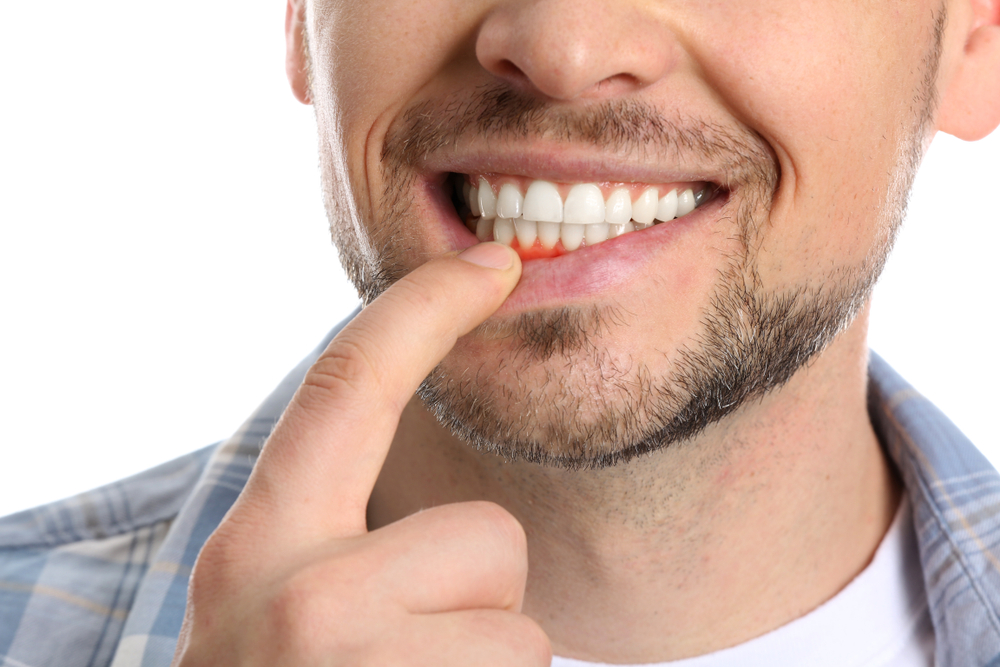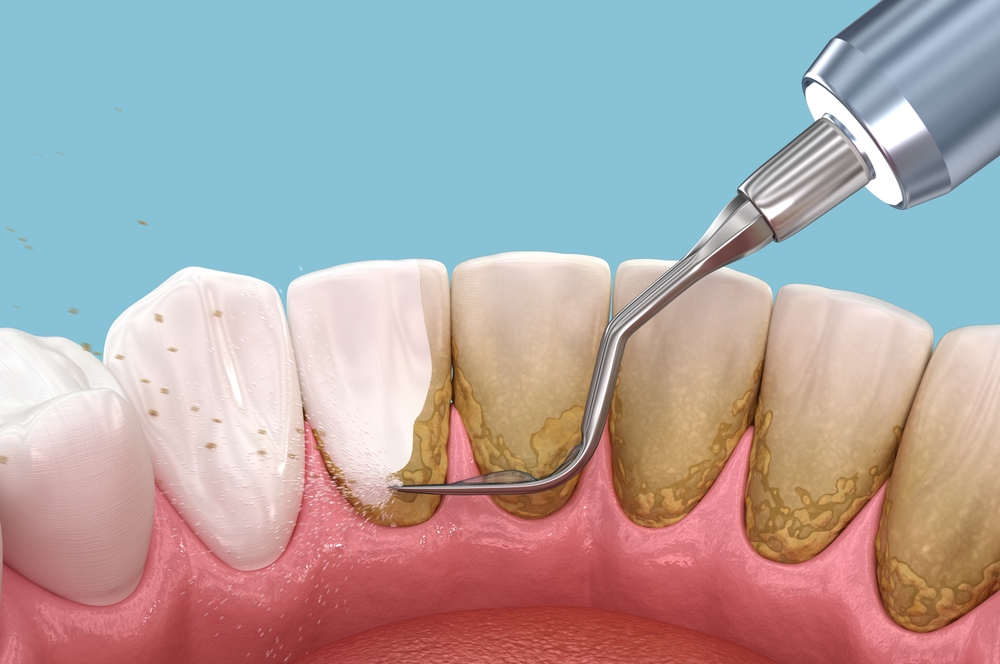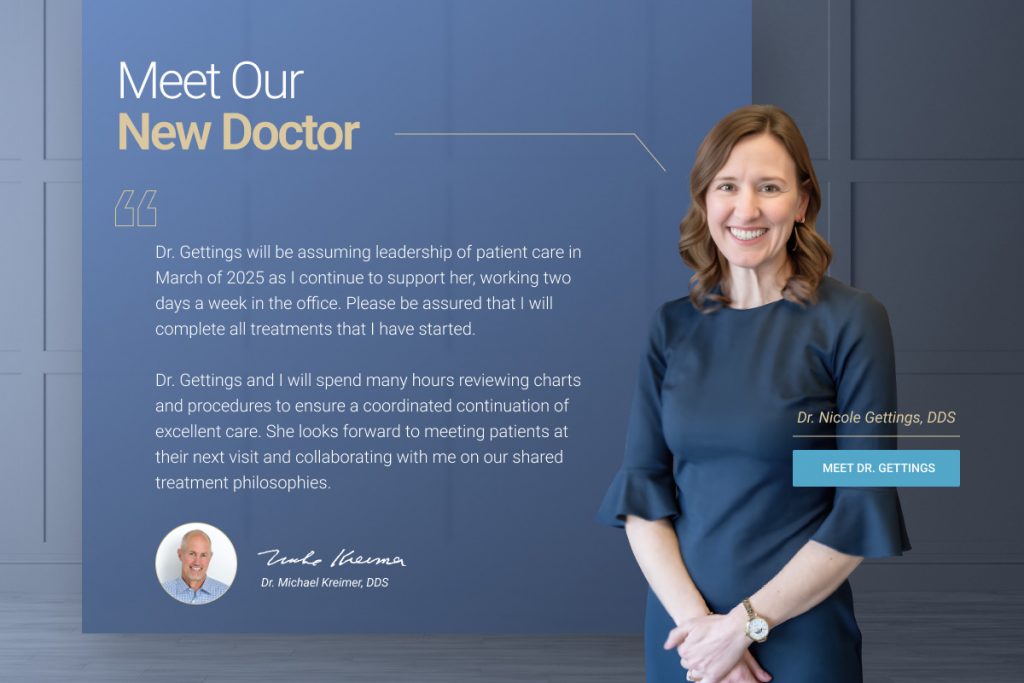Get the Care You Need, When You Need It at Michael Kreimer, DDS
Maintaining healthy gums is essential to your overall oral health, and at Michael Kreimer, DDS, we understand how gum disease can negatively impact your smile. Early periodontitis is a common condition that can lead to significant dental issues if left untreated. As your trusted dentist in Loveland, OH, Dr. Michael Kreimer and our dedicated team provide the necessary care and treatment to help you address this condition before it progresses further. If you are noticing signs like swollen, bleeding gums, or bad breath, it’s time to take action.
If you’re in need of treatment for early periodontitis or simply want to ensure your gums remain healthy, Michael Kreimer, DDS is here to help. Call 513-677-3656 now to schedule your appointment. We look forward to helping you achieve a healthier smile.
What Is Early Periodontitis?
Early periodontitis is caused by the buildup of plaque and tartar on the teeth, which harbor harmful bacteria. These bacteria lead to inflammation of the gums, a condition known as gingivitis. If left unchecked, gingivitis can evolve into periodontitis, a more serious gum disease that can cause tooth loss. Early periodontitis is typically painless, which is why many people may not notice its symptoms until it has already caused damage. It is important to recognize the signs early to avoid the progression of the disease and protect your oral health.
The gum tissue around your teeth becomes inflamed, and pockets may begin to form between the gums and teeth. These pockets trap food particles and bacteria, which can further infect the area. Over time, this can destroy the supportive bone structure that holds your teeth in place. With professional care, early periodontitis can be reversed before it turns into something more serious, such as advanced periodontitis or tooth loss.

The Importance of Preventing Early Periodontitis
Preventing early periodontitis is possible with good oral hygiene and regular dental check-ups. At Michael Kreimer, DDS, we focus on educating our patients about the importance of taking care of their gums and teeth to avoid gum disease. By practicing proper brushing and flossing techniques and attending regular dental exams, you can minimize the risk of developing gum disease. Regular visits to our Loveland, OH office allow us to detect any early signs of gum disease and treat them before they become more serious.
Symptoms of Early Periodontitis
The early stages of periodontitis may be hard to detect without a professional dental examination. However, there are some key signs to look out for that may indicate the presence of gum disease:
- Red and Swollen Gums: Gums may appear puffy, shiny, or red as a result of inflammation.
- Bleeding Gums: One of the most noticeable signs of early periodontitis is gums that bleed when brushing or flossing.
- Bad Breath (Halitosis): Persistent bad breath may be a result of bacteria in the mouth producing foul-smelling toxins.
- Sensitive Gums: Gum tissue may become tender or painful, especially when brushing or eating.
- Receding Gums: As gum disease progresses, the gums may begin to pull away from the teeth, exposing more of the tooth structure.
- Formation of Pockets: Small gaps or pockets may form between the teeth and gums, leading to further irritation and infection.
- Loose Teeth: As the gums and bone structures weaken, the teeth may become loose or shift in the mouth.
If you notice any of these symptoms, it is vital to schedule a visit to our Loveland, OH office for a thorough examination and personalized treatment plan. At Michael Kreimer, DDS, we provide comprehensive periodontal care. Contact us at 513-677-3656 to schedule your appointment today!

Diagnosing Early Periodontitis
Early periodontitis is diagnosed during a comprehensive dental exam. Dr. Michael Kreimer uses a combination of visual inspections, dental probing, and X-rays to evaluate the health of your gums.
- Visual Inspection: Dr. Kreimer will examine your gums for signs of inflammation, bleeding, and redness. He will also check for plaque or tartar buildup, which is a major contributor to gum disease.
- Probing: Using a periodontal probe, Dr. Kreimer measures the depth of the spaces between your teeth and gums. Healthy gums typically have pockets that are no more than 3mm deep. Deeper pockets may indicate the presence of gum disease.
- X-Rays: X-rays help detect bone loss, which can occur with periodontitis. Early detection of bone loss is crucial in determining the severity of the condition.
A comprehensive examination will allow Dr. Kreimer to diagnose the stage of gum disease and create a treatment plan tailored to your needs. Early diagnosis allows for better management of gum disease and prevents it from worsening.

Treatment Options for Early Periodontitis
If you are diagnosed with early periodontitis, there are several treatment options available to help manage and reverse the disease. Dr. Kreimer will discuss your specific situation and recommend the most effective course of action.
Scaling and Root Planing
Scaling and root planing is a deep cleaning technique that removes plaque and tartar from the teeth and roots. This non-surgical treatment helps to eliminate the bacteria causing the gum disease, allowing the gums to heal and reattach to the teeth. Scaling and root planing can significantly reduce inflammation and prevent the disease from progressing.
Antibiotic Therapy
In some cases, Dr. Kreimer may recommend the use of antibiotics to control the bacterial infection. Antibiotics can be applied directly to the gums or taken orally to help reduce bacteria and promote healing. This treatment can complement the scaling and root planing procedure to improve results.
Improved Oral Hygiene Practices
Good oral hygiene is essential for preventing and managing early periodontitis. Brushing twice a day with fluoride toothpaste, flossing daily, and using an antiseptic mouthwash can help keep the bacteria in check and prevent further damage to the gums.
Regular Dental Visits
For patients with gum disease, frequent dental visits are necessary to maintain oral health. Dr. Kreimer may recommend more frequent dental cleanings, such as every three to four months, to ensure that the plaque and tartar buildup does not return and the condition is effectively managed.
Lifestyle Changes
Lifestyle changes such as quitting smoking, reducing alcohol consumption, and eating a healthy diet can all support gum health. Smoking, in particular, significantly increases the risk of developing gum disease and can hinder the healing process.
Frequently Asked Questions
What causes early periodontitis?
Early periodontitis is caused by the buildup of plaque and tartar on the teeth. The bacteria in plaque produce toxins that irritate the gum tissue, causing inflammation. Poor oral hygiene, smoking, and certain health conditions like diabetes can increase the risk of developing periodontitis.
How can I prevent early periodontitis?
To prevent early periodontitis, practice good oral hygiene, such as brushing twice a day, flossing daily, and using mouthwash. Regular dental check-ups and cleanings are also essential to remove plaque and tartar buildup before it causes harm.
Is early periodontitis reversible?
Yes, early periodontitis is reversible with proper treatment. Scaling and root planing can remove plaque and tartar, while improved oral hygiene practices help prevent further damage. It’s essential to seek professional care early to ensure the best outcome.
Can periodontitis cause tooth loss?
If left untreated, periodontitis can progress to more severe stages, leading to tooth loss. However, with timely intervention and proper treatment, you can manage gum disease and avoid tooth loss.
How often should I visit the dentist for gum disease?
If you have early periodontitis, Your dentist may recommend more frequent visits, such as every three to four months, for cleanings and monitoring. Regular visits help ensure that your gum health is maintained and that any issues are addressed promptly.
Stop Periodontitis in the Early Stages
If you suspect that you have early periodontitis, don’t wait for the condition to worsen. Schedule an appointment with Dr. Michael Kreimer at our Loveland, OH office today to receive a comprehensive dental exam and personalized treatment plan. Our experienced team is here to help you maintain healthy gums and a beautiful smile. Contact us today at 513-677-3656 to book your consultation.
We proudly serve patients in Loveland, OH, as well as nearby communities like Milford, Mason, and West Chester. Whether you’re visiting us for a routine check-up or a specific concern like early periodontitis, we are here to provide you with top-quality dental care.


